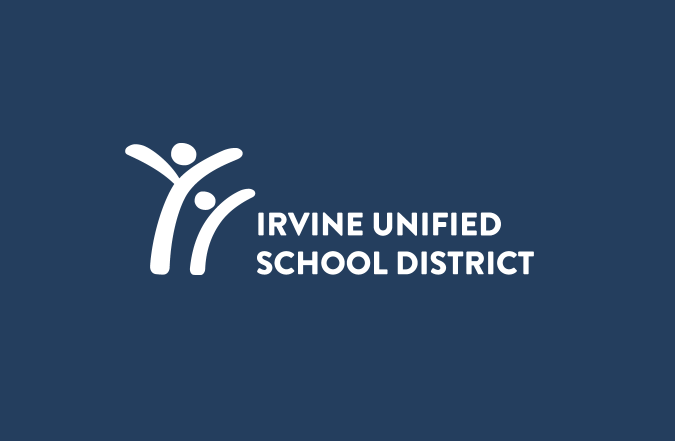BY SUPERINTENDENT GWEN E. GROSS, Ph.D. In this era of shrinking state revenue, the Irvine Unified School District has grown accustomed to preparing its annual budgets with worst-case scenarios in mind. Unfortunately, based on recent reports out of Sacramento, what appeared to be a worst-case scenario in March now looks optimistic at best.
Revenues in California have slid to previously unimaginable levels, and Governor Jerry Brown’s proposal to help close the state’s shortfall by extending some temporary taxes has failed to gain traction. All of this adds up to very bad news for public schools, though we won’t know how bad until mid-May, when the governor is expected to share his latest vision for resolving the crisis. Even then, the so-called “May Revise” merely serves as a starting point for deliberations that could extend beyond the summer months. In the meantime, educators are left to ponder what else can be cut. Over the last two years, budget reductions in IUSD alone have totaled approximately $36 million, including ongoing cuts and onetime offsets. To bridge the gap for 2010-11, our Board of Education reluctantly voted to approve
a raft of measures in March 2010, including furlough days and increased class-sizes in grades one through three and nine. Our employees have felt these impacts. So have our students and their parents. And it appears the worst may not be over. IUSD, along with other districts across the state, had been anticipating another hit of around $330 per student for the fiscal year that begins July 1, amounting to a loss of $8.9 million locally. But there are rumblings now that the state may try to reduce education spending by $825 per student, which would be a loss of more than $22 million for Irvine. I should note that county officials and school finance experts have informed us that we are as well positioned as any district in the state fiscally, thanks to the proactive steps taken by our Board of Education and staff. Yet the above cuts are so massive that they threaten to fundamentally alter our educational profile, and it’s hard to imagine how other districts in California would even remain solvent. We certainly hope lawmakers will realize that K-12 education can’t sustain a raid of that magnitude. We hope Democrats and Republicans will work together to find a more reasonable solution that doesn’t shortchange our youngest and most vulnerable residents. But we’ve also learned that it’s wise to brace for the worst in California, and in fact we are legally mandated to do so. With that in mind, IUSD and the Irvine Teachers Association recently issued a joint communiqué indicating our intent to plan for a traditional 183-day calendar in 2011-12. However, both groups urged employees to be prepared for the possibility that the state will push for a shorter school year to help districts cope with an unprecedented drop in revenue. A 160-day school year in IUSD, for example, would save about $20 million through the implementation of 23
furlough days, resulting in an across-the-board pay cut of more than 10 percent. This scenario would be devastating for our employees and heartbreaking for our students and their families, and you can be sure we will continue to lobby aggressively on behalf of all of our stakeholders. Nevertheless, we must be prepared for any eventuality. Further complicating matters is the fact that the state will almost certainly fail to have a spending plan in place by June 30, when school district budgets are due. That means districts, including ours, may be forced to introduce new cuts and changes to their academic calendars well into the 2011-12 school year.
ACLU lawsuit and student fees Meanwhile, educators from Eureka to San Diego are also grappling with the financial ramifications of a lawsuit that was filed against California by the American Civil Liberties Union. At issue were
fees and charges imposed on public school students. IUSD and other districts had previously sought parent contributions to help offset the cost of uniforms, transportation and essential equipment in an effort to maintain enrichment opportunities, sports and extracurricular activities. At the same time, it had been our district’s general practice to waive charges for students whose families declined to pay. The recent settlement agreement between the state and the ACLU has made it clear that school districts – and all affiliated groups, including PTAs, booster clubs and foundations – can only ask for voluntary donations. Subsequent legislation is being crafted to affirm that students and their parents cannot be required to pay money to gain access to any educational activity. As a result, IUSD is working to empower schools, clubs and sports teams to seek donations in an effort to maintain vital programs that would otherwise disappear. Time will tell if this model can be sustained, but I certainly would not bet against the generosity of our community. (For more on this topic, please visit
www.iusd.org/student-fee-info.) On a personal note, it pains me to deliver these difficult messages, particularly at this special time of year, when so many of our staff members and families are eagerly anticipating student performances, award presentations, open houses and, ultimately, graduation ceremonies for our high school seniors. Let us not lose sight that these are the events and celebrations that we will remember long after we have overcome today’s budget challenges.

